Crows – one of the short stories included in the film Dreams (1991) by Akiro Kurosawa – begins with a man in a museum admiring the paintings of Vincent van Gogh. The man appears to be a painter because he is carrying an easel and a bag with brushes and paints. At first, we see him admiring a painting; then, he is able to move out of the museum and step into the painting that has been transformed into a three-dimensional world. Moving through the painting, the man encounters the master himself, Van Gogh (played by actor, Martin Scorsese). Eventually the men move through three-dimensional spaces that are Van Gogh paintings ‘brought to life’. Finally, the men enter the painting, Wheat field with Crows (1890), where the depicted birds in flight actually take flight in the reality of Kurosawa’s dream. Eventually the crows return to their original places on the canvas, and the canvas is seen back on the wall in the museum. The man is awake. He has left behind this virtual world, a world that is very much alive, and reentered the world of reality.[1]
Many people today can relate to the man in the movie. We spend many hours staring into and contemplating technological screens (a different kind of painting) that allow us to access a virtual world that is very much alive, yet different from the ‘real’ world. Like the man in the museum, we access two different spaces through interactive technologies. Yet this ‘double life’ – especially the virtual world where we spend increasing amounts of time – alienates us more and more from our real lives/selves. Kurosawa’s meditation on the worlds we inhabit prompted me to write about are life in a ‘virtual’ reality created and sustained by interactive technology. Today, interactive technology is a part of our everyday life. I would like to describe the three most popular ‘tools’ allowing people to access and live in virtual worlds: 1.the Internet (website browsing and on-line gaming); 2. E-mail; and 3. Chat-room.
Internet (website browsing and on-line gaming)
A very popular movie in Poland, S@motność w sieci (2005),[2] touched on the enormous problems and challenges encountered in a global network society. The movie invites us to reflect on how the new technology impacts human relations. The question that slowly emerges from the film is the following: Is our present human alienation a consequence of the development of new interactive technologies, or, on the contrary, thanks to these new techniques, are people brought closer together?
Today, the Internet plays a very important part in many people’s lives. Interactive technology offers people vast possibilities to make contact with the world around them. We access much more information than ever before and the access is faster than ever before. Additionally, this new technology makes possible instantaneous, interactive entertainment. We can play on-line games with other gamers from all over the world. New worlds of information and entertainment are open to us, yet, paradoxically, it is this same medium of instant connection which also subordinates and absorbs the time that we could actually be physically present to others. Interactive technology becomes a window to the world for lonely people, for the handicapped, and for individuals who have difficulties with friendships in person, but it also keeps us physically separate, isolated, and hence alienated by chaining us at home to our computers. At the same time that we ‘meet’ others or ‘discover’ a bigger world through web surfing, our solitude deepens when we realize this ‘social’ activity is a private affair.
After the very big success of the computer game, Sim City, where players created their own virtual worlds and their own personal characters controlled by a mouse, it was a time for Second Life. In this game people can create their own profile and ‘travel’ in a virtual on-line world. You can meet with other people, discuss everything with them, shop, look at advertising, or participate in social and political life. Every day, millions of people meet each other in this virtual world. Participants in this world lead a double life: real and virtual.[3] In addition, players can even create a private language that only they can understand. For many players, it represents the only possibility for them to understand and be understood. This has proven especially true for handicapped people and people who have problems communicating with others. This process creates collective minds[4] or a kind of collective intelligence[5] where all kinds of information are gathered and shared. On the one hand, the virtual reality of on-lining gaming introduces new languages to the world; on the other hand, these ‘virtual languages’ are hermetically sealed and function for the communication of a select group. Consequently, they deeply alienate the creators and speakers of that language from others. The same is true in the field of technology, where computer specialists use ‘computer slang’ such as HTML, Java Script, Basic, Logo, C++, etc. Short sentences help members of this community to communicate quickly and easily. But people who don’t understand these languages are segregated from this ‘computer society’.
E-mail is a new alternative to the traditional ‘letter’. Thanks to the use of the Internet, letter writing has new possibilities. Messages and their contents which would have seemed silly to send ‘in the mail’ – messages concerning meetings, entertainment, news, invitations to theater and cinema are sent easily via e-mail. Moreover, e-mail messages offer the possibility of sending other contents that could never be sent or contained in traditional letters: brief film and audio clips, and internet links. All of these new ways of communicating help build ties among groups of people or friends.
On the one hand, this communication has advantages. We want to receive information on time in order to keep abreast of current events. We even want to have the pleasure of knowing more than others! Possessing greater knowledge helps us to plan quickly and efficiently, it helps us to react faster, and we take comfort knowing that we will not be surprised by anything less than ‘breaking news’. This greatly reduces the stress associated with a lack of information. On the other hand, the disadvantages of immediate communication may outweigh the advantages.
Personally, I receive over 200 daily e-mails. It is difficult to check and read every one of them because it is a time consuming process. Often, I simply delete many e-mails without having read them and occasionally I delete some important communications by accident. This possibility of deleting important e–mails by accident creates more stress in me than I had ever imagined! Paradoxically, the e-mails that are supposed to be helping me acquire information quickly and efficiently become a source of tension and stress that make my life more difficult.
https://youtu.be/orGM62l1OpM
Similarly, in the workplace too many people are forced to spend more time checking and deleting their junk mail folders than answering the important e-mails that need immediate attention. Sometimes, the computer erroneously tags legitimate correspondence as junk mail thus creating another headache at the office. Worse, the time spent checking e-mail and a junk folder minimizes time colleagues spend communicating with one another at the work place. Here again, instead of making things easier for us, e-mail communication can be a source of irritation and alienation.
Chat-room
A few months ago, I read a prayer in Polish. It was a prayer to the Almighty Webmaster’s God. The prayer began: “Give me the power to log off from the Internet, courage to not check my e-mail; and wisdom to keep me out of the chat room.”
The chat room is another form of Internet interaction. In this medium, we create and find thematic rooms to discuss, receive advice, and find friends, a lover, wife or husband. I even have friends (one from Poland, one from the U.S.A.) who met on-line, started to date, and are now happily married with two children. In chat rooms, many people stop by for a minute to ‘talk’. Talking here is really instant messaging. Although chat-rooms are for everyone, and allow people to ‘talk’, people still remain anonymous in this ‘virtual’ relationship.
Why, I wonder, would someone not speak to a colleague, but speak easily on a forum? I think that anonymity gives people the feeling of safety in communication. People even give themselves permission to say what they would never say to one another in person. In chat-rooms people can ‘talk’ freely and without self-censorship. They are also free to multi-task: they can ‘talk’ while watching movies, listening to music or preparing food. In a chat-room, ‘talking’ frees us from certain social protocols that come into play when people meet face to face. In a chat room, we often don’t even know the people with whom we are having a conversation. Consequently, we can write everything with little or no consequences. The computer simply accepts and sends messages, even the most stupid and vulgar. In real life, this ‘freedom’ would be impossible or at least come with restrictions.
Although we can’t do everything at one time, computers and different forms of internet communication make it possible to work, earn money and stay at home. My friend works in a bank in Chicago. She received a computer from her bank and she now works in her house. While working for the bank at home, she also prepares lunch and dinner for her husband and children, takes care of her children, cleans her house, takes care of her garden, watches TV and listens to music on the radio. She always finds time to help her friends. She remains close to her family ‘at work’. When work time is separated from private life, this would be impossible. Thanks to the virtual world of the internet, the line between work and home space diminishes.
The paradox, however, of this situation is that my friend now loses immediate contact with her employer. She also loses contact with her colleagues at work. She just makes a call and talks with a face-less anonymous person doing his/her job. The relationship between employer and worker built on interpersonal contact acquired in the office is gone. The work is maintained, but at the loss of knowing each other. They communicate about work projects and responsibilities, but there is neither time nor a “real” space to communicate about personal matters. You cannot celebrate the end of a work week with a colleague if you no longer leave the office together.
Incredible changes in interactive technologies in contemporary culture deeply transform our society. It transforms our traditional ways of spending time together, the way we organize our work, and even the ways in which we coordinate and direct our social and work responsibilities. These changes make life ‘faster’ than ever before.[6] Interactive technology has made our world smaller than ever. For many people whose lives are dependent on these interactive technologies, their ‘virtual’ world is more important than the real world that they inhabit. In the same way that a theologian might know about God but never know God, people living in virtual world know about many people while never meeting (knowing) those people. Ironically, people who are so connected and social in this virtual world are more alienated from society in the real world. This is a paradox of the new millennium; the internet allows us to share our lives, passion and work with others even if we don’t know who they are. We share more of ourselves and yet spend less time – maybe no time – in direct human contact with other people. There is a strong sense of alienation that develops when face to face human contact is lost. Nothing replaces eye contact or human touch during conversation. Only time will tell us how deeply these changes will impact our culture and ways of being with one another. The ‘case’ is still open.
[1] Retrieved April 1, 2009, from: https://www.youtube.com/watch v=YQYFhUhOuw0&feature=PlayList&p=E0FB4D4F3B9449F7&playnext=1&playnext_from=PL&index=69[2] Janusz L. Wisniewski. (2007). Loneliness on the Net, Proszynski i S-ka Press.
[3] For example, in this on-line game, characters pay for their virtual clothing and other items with real money/currency. I once read that one player made significant amounts of real money selling her virtual merchandise.
[4] Tiziana Terranova.(2000). Free Labor: Producing Culture for Digital Economy. Social Text. (63, Vol. 18, No. 2), p. 43-46. Retrieved April 1, 2009, from: https://www.electronicbookreview.com/thread/technocapitalism/voluntary
[5] Henry Jenkins. (2006). Convergence Culture. Where Old And New Media Collide. New York University Press. New York, p. 26-27.
[6] I am referring to Clay Shirky’s book, Here Comes Everybody: The Power of Organizing without Organizations (2008), especially Chapter 7, entitled, Faster and Faster. See page 163: “Shared awareness allows otherwise uncoordinated group to begin to work together more quickly and effectively. This kind of social awareness has three levels: when everybody knows something, when everybody knows that everybody knows, and when everybody knows that everybody knows that everybody knows.“











